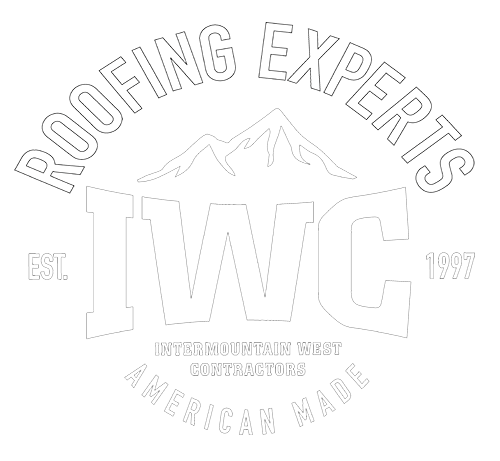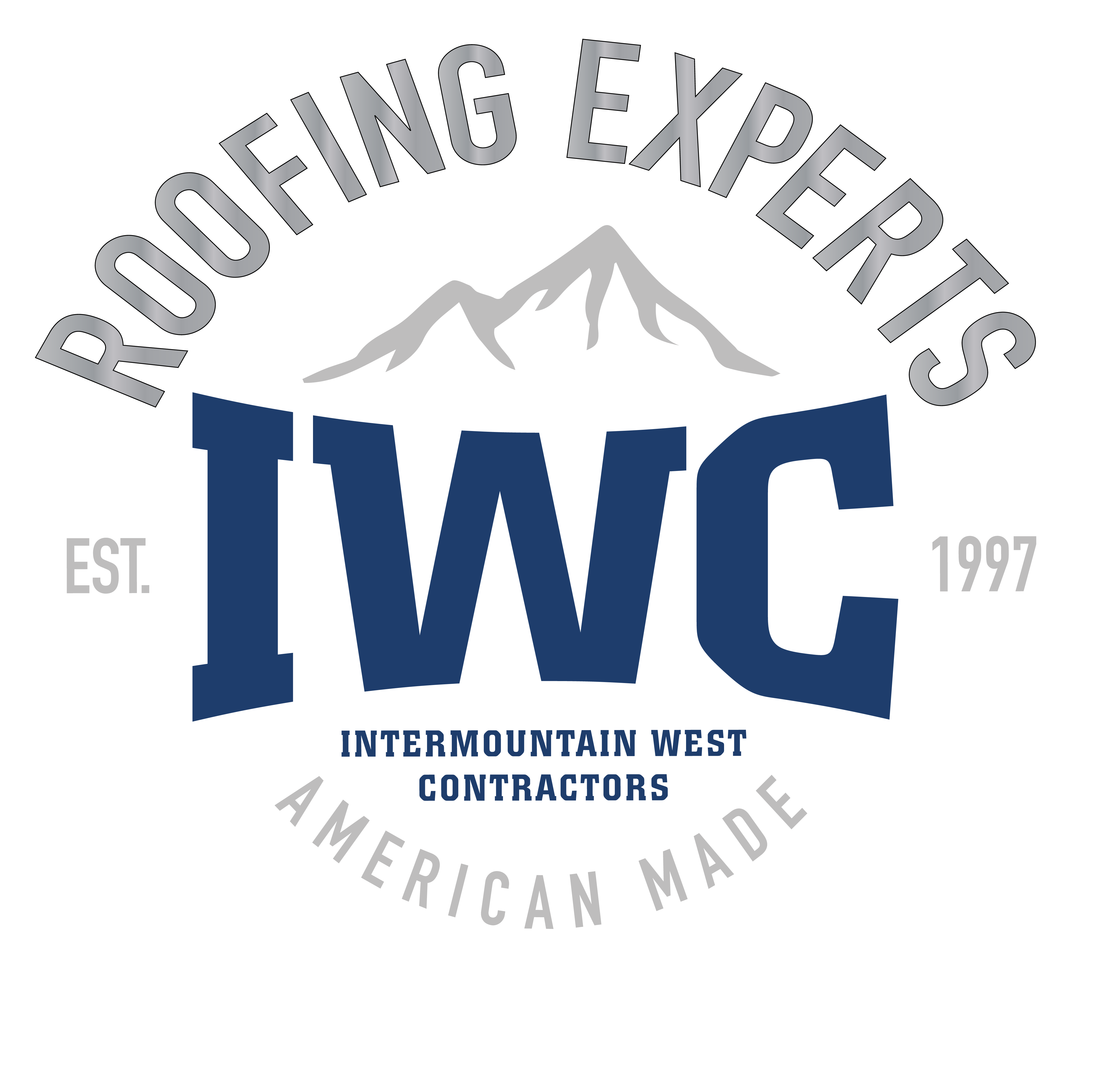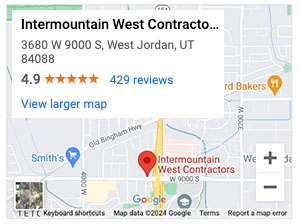
Struggling With Roof Costs? Here’s the Credit Score Answer You Need.
Replacing a roof is one of the most significant expenses homeowners face. For many, paying out of pocket isn’t feasible, and financing seems like the only option. That’s when the big question comes up: What credit score do I need to get approved for a new roof?
If you live in Utah or the surrounding Wasatch Front and are worried your credit history might hold you back from protecting your home, you’re not alone. In this guide, we’ll break down the credit score requirements, what lenders really look for, and the options available if your score isn’t perfect. By the end, you’ll know exactly what to expect and how to move forward with confidence.
What We’ll Cover:
- Typical credit score requirements for roof financing
- Options if your credit isn’t great
- Financing programs available to homeowners
- How to choose the right payment plan
- FAQs about credit scores and roof replacements
What Credit Score Do You Really Need?
Most lenders look for a credit score of 620 or higher to approve a personal loan or financing plan for a roof replacement. Some banks prefer 640+, while premium financing requires 700+.

Here’s the thing: there isn’t a single magic number. Different lenders, roofing companies, and programs set their own guidelines. What matters most is your overall financial profile, not just the score.
✅ General guidelines:
Poor (<580) – limited options, but alternatives exist
Excellent (700+) – best rates, flexible terms
Good (640–699) – approved in most cases, fair terms
Fair (580–639) – possible approval, but higher interest rates
Can You Get Roof Financing With Bad Credit?
Yes. Having a lower score doesn’t automatically shut the door on financing. It just means you may need to look beyond traditional banks.
Options include:
- In-house financing is available through roofing companies, which often offer flexible payment plans.
- PACE programs (where available) – repayment is tied to property taxes, not your credit.
- Secured loans or HELOCs – use your home’s equity as collateral.
- Credit unions – often more flexible than big banks.
For Utah homeowners, the key is knowing which local programs are available. Many providers understand that roofs aren’t optional. They’re willing to work with homeowners even if credit isn’t ideal.

Financing Options for a New Roof
When you’re evaluating how to pay for a new roof, you’ll come across several paths. Each has its own pros and cons.
Personal Loans
- Fast approval, fixed monthly payments
- Rates depend heavily on credit score
Home Equity Loans or HELOC
- Uses your home’s equity as collateral
- Often have lower interest rates than personal loans
- Requires a solid home equity position
- Built-in convenience, often zero down
- May include promotional 0% APR offers for short terms
PACE Financing (if available in your city/county)
- Approval is not based on credit score
- Payments collected with property taxes
- Limited to certain areas
Credit Cards
- Easy to use in a pinch
- High interest if not paid off quickly
How to Choose the Right Option
Picking the right plan comes down to three factors:
- Monthly payment you can realistically afford
- Total interest you’ll pay over the loan term
- Your long-term financial situation
A good rule of thumb is to compare at least two options. Ask about total repayment amounts, not just monthly numbers. Sometimes the “cheapest monthly” plan ends up costing thousands more over time.
Why You Can Trust This Information
At Intermountain West Contractors, we’ve been replacing roofs across Utah since 1997. We see firsthand how financing impacts families, making this investment. Our team is Owens Corning Platinum Certified, which means our installations meet the highest standards. More importantly, we’ve helped hundreds of homeowners navigate financing decisions, enabling them to protect their homes without unnecessary stress.
Ready to Explore Your Options?
Financing a roof doesn’t have to be overwhelming. Once you know the credit score requirements and the different options available, it becomes a lot more manageable.
If you’re weighing your choices, the easiest step is to get a clear estimate. That way, you’ll know the total cost upfront and can see what financing programs make sense for your situation.
✅ Ready to move forward? Get a Free Estimate
Frequently Asked Questions
Can I finance a roof with a credit score of 580?
Yes, it’s possible, but you’ll need to be strategic. A 580 credit score falls into the “fair” category, which means traditional banks may decline or charge higher interest rates. Alternatives include in-house financing programs offered by local roofing contractors, credit union loans, or specialized financing, such as PACE programs, where available. Another option is using a co-signer with stronger credit. While you may not get the lowest rates, there are still pathways to approval.
What’s the cheapest way to finance a new roof?
The most affordable financing usually comes through a new roof installation tied to a home equity loan or HELOC. These products leverage the equity in your home, which reduces risk for the lender and allows for lower interest rates compared to personal loans or credit cards. If you qualify, you’ll likely save thousands over the life of the loan. For short-term affordability, roofing companies sometimes run 0% APR promotional offers. These are great if you can pay off the balance within the promo period.
Does insurance cover roof replacement?
Insurance may cover your roof replacement, but only if the damage results from a covered event, such as hail, windstorms, or fire. Every day wear and tear, aging shingles, or neglect are not covered. If you suspect storm damage, it’s important to document it and contact both your roofing contractor and insurance provider quickly. Many Utah homeowners discover their roof replacement can be partially or fully funded through insurance if the damage was caused by severe weather, which is common in the area.
How long can I finance a roof for?
Roof financing terms range widely, typically from 1 to 15 years. Personal loans often fall on the shorter end (3 to 7 years), while home equity loans and HELOCs can extend much longer. Roofing company financing programs usually offer multiple term options, allowing homeowners to select a monthly payment that fits their budget. Keep in mind that while longer terms reduce the monthly cost, they increase the total interest paid over time.
What if I can’t get approved anywhere?
If every lender declines, you still have options. First, explore whether insurance will cover part of your roof replacement. Second, consider partial work to address immediate leaks or hazards while saving for a larger replacement. Some homeowners also qualify for government or local assistance programs designed to cover essential home repairs. Finally, focus on improving your credit over the next few months and reapply later. A slight increase in your score can unlock more financing opportunities.
Protect Your Home With Confidence
Your roof protects everything underneath it. Whether your credit score is excellent or less than ideal, you have options to get the replacement you need.
Intermountain West Contractors makes it simple with straightforward estimates, Owens Corning’s industry-leading warranty, and guidance on financing solutions that fit real households.
Don’t let credit score worries hold you back. Take the first step today and explore the best option for your home.
Related Reads:
- Does Homeowners Insurance Cover Roof Leaks? - December 16, 2025
- Should I Repair Or Replace My Commercial Roof? - December 9, 2025
- What Time of Year Is the Cheapest to Replace a Roof? - November 23, 2025



Comments are closed